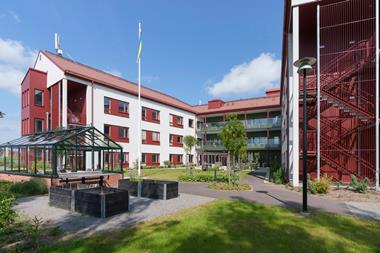Uncertainty surrounding Brexit has caused UK transaction volumes to drop by a third during the first six months of 2019 compared with the same period last year, according to Real Capital Analytics (RCA).
In its second-quarter European market report, RCA found that transactions were down 31% year on year, at €23.4bn, while deals in continental Europe were down 15% to €114bn between January and June of this year.
“The political process surrounding Brexit is clearly unsettling property investors in the UK market, who are becoming increasingly risk averse,” said Tom Leahy, RCA’s senior director of EMEA analytics, said.
Transaction volumes also slowed in most major European markets in the first-half of 2019, with the exception of Spain and Sweden.
European retail transactions volume fell by 51% to €12.6bn and the sector looks set to end the year with the worst performance since 2009.
RCA said Investors appeared to be switching out of retail property into more defensive residential and ‘beds’ sectors, such as apartments, hotels, senior housing and care homes. Apartments continued to be the second largest sector after offices, having overtaken retail last year for the first time.
Leahy said the “slowdown was magnified by the sharp declines in retail investments, but excluded defensive segments such as apartments, hotels, senior housing and care homes”.
He added: “These ‘beds’ sectors are benefitting from structural market factors, and are now attracting around a third of all the investment capital being placed in European property.”
The European office investment market had the slowest start in five years in the first half of 2019, with €47.6bn in transactions completed, a 9% decline over the same six months of 2018.
RCA’s data suggests that the extended period of yield-driven capital growth in European office markets is ending. Office yields in London have risen 50bs points since the middle of 2015.
Deal activity in industrial and logistics properties, which has been one of the most popular sectors recently, was down in nine of the top 10 markets year-on-year, although eurozone yields are still compressing on average.
In the UK, transactions dropped 40% in the first-half and yields have started to tick up from their all-time lows, while yields for eurozone industrial stock have continued to move in.
German institutional investors continued to top the rankings of investors in European real estate and, on a rolling 12-month basis, their investments are at record levels.
But Chinese and Hong Kong-based investors were conspicuous for their absence from the top 10. Between 2013 and the end of 2017, they have spent over €50bn on European commercial property, but domestic capital restrictions means buying has virtually ground to a halt, RCA said.
For the first time, they have become net sellers in European markets, selling €3.2bn in assets and acquiring €1bn.
April to June was the slowest quarter for UK real estate since 2012, and both cross-border and domestic investment levels were at a six-year low.
France fared relatively better than the other large European real estate investment markets in H1, although transaction volumes were down 11% year-on-year. The Paris office market was buoyed by an influx of capital from South Korea, with more than €2bn of deals in the first-half involving South Korean purchasers, RCA said.
The gap between Paris and London – the second and most active metropolitan real estate investment market in Europe, respectively – continued to narrow markedly in the first six months of 2019. The French capital lagged its UK counterpart by about €1.2bn in transactions. Investment volume fell by 34% year-on-year in London to €11.3bn, while Paris was down a modest 6% at €10.1bn.
Germany retained the top slot as the most active European national investment market , slightly ahead of the UK, but deal volume fell by 21% due primarily to declining office transactions.












